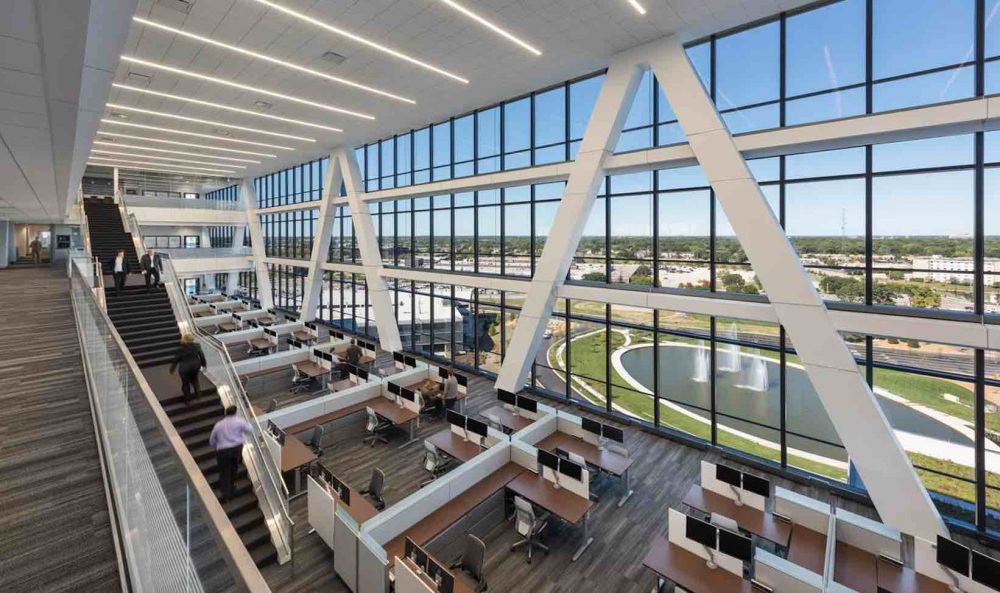Top 5 Mistakes When Taking On New Commercial Property
Businesses are in the market for property when there is; a forthcoming lease expiry on office space, a decision to expand existing or open new premises or a decision to buy, sell, or downsize. Avoiding the following simple mistakes will hold you in good stead when you seek a seamless transition from your existing site to your new base. These steps are, for the most part, common sense yet it’s surprising how often they are ignored.
Below are the 5 most common mistakes business make when finding commercial property & the steps needed to avoid them:
1. Give Yourself Plenty of Time
The sooner the project starts, the more options are available. Having more options typically translates into a better outcome and a lower cost. There are no hard and fast rules here but for a typical office lease expiry project, from search to handing over a fully commissioned space, a minimum of six months is required for a small and simple project rising to twelve to eighteen months for larger or more complex projects. Even more for new buildings of course.

Example
Company A, with a 500m2 office requirement in Melbourne, continued to put off commencing a search for new premises, eventually pushing the button on the search about three months out from the expiry of their lease. The thinking was that even if they couldn’t find anything suitable in the near term they would simply ask their existing landlord for an extension of time. Their landlord did indeed provide them with extra time, one month only, and they were forced to pay a premium on settling their obligations to make good their office premises. As they had no time to do the actual make good works, only a financial settlement was open to them.
Given the business had so little time the only option available to them was an office with an existing fitout in place. This was far from ideal, as the layout would obviously be designed for someone else. As the client had no time to negotiate the deal they were forced by the lessor, who was fully aware of their predicament, to accept the first offer. They then planned to modify the premises to suit after they occupied. Another premium was paid to undertake works outside of normal working hours as they could not be done during operating hours. So, the decision to defer the search cost the client several times over; a penalty on the make good of their previous space, a premium on the rent of the new space as no time was available to undertake a proper competitive bidding process and a premium on the cost of altering premises to suit.
2. Prepare a Business Case for New Projects
This will require essential research that can be used both to confirm costs for the business planning exercise and as a lead into the due diligence project to follow. The business case needs to examine all facets of a new venture, but from a strictly property perspective, an understanding of the local market, trends and pitfalls needs to be present. Knowing what to allow for in terms of building works and the consultants you will need to engage will prepare you from the project’s commencement.

Example
As with any new venture we need to know in advance of committing time and money that the investment will pay off, or at least given a number of assumptions the case for committing stacks up. This is as true for a property project as it is for a start-up. We see companies custom building factories and warehouses when careful negotiation with owners of existing properties for lease would provide suitable, albeit not perfect, premises for a fraction of the cost. When the covenant is strong and the terms right, most landlords will consider significant alterations to their premises in order for them to provide specialised facilities for industrial or warehouse users. Purpose building facilities is costly, time-consuming and will rarely provide an asset that returns the investment, given it is built with only you in mind.
3. Do Your Homework
Is your proposed usage of a property permitted?
This is less of an issue with office premises but a serious consideration when it comes to manufacturing or logistics property. Make sure you know the list of organisations that need to be consulted to confirm your ability to use the property the way you intend.
Is the property heritage or does it contain heritage elements? Are there any statutory organisations that will influence how you use a building? What adjacent works or development are proposed in the future?
Ignoring any of these questions can cost you dearly.

Businesses that lease premises without checking the building’s permitted uses, can lose a lot of money. This happens all too often. What complicates matters further are the varied zoning laws that effect certain areas. What’s permitted in one local government area may not be permissible in the same zoning in a neighbouring area. These differences come down to local rules.
At Northburn Partners for example, we have seen buildings leased for manufacturing that have been used for warehousing, as the intended use was never permitted. No one checked. This is an expensive and time-consuming mistake.
4. Make Sure You Consider the Built Environment, Not Just the Property Transaction
This is frequently overlooked, as it is often assumed a property professional shares both skillsets. Many instances exist where businesses have leased or bought property, only to find their investment is riddled with unforeseen issues. This is because insufficient attention was paid to the built environment during the due diligence phase. Hazardous materials, non-compliance, leaking roofs (common with industrial property) and insufficient power are all costly and time consuming to fix, so talking with a specialist can save you time and money.
Agents and owners will try and avoid these details. They will often be the last to know and care about any issues with the building. They want the deal done as quickly as possible so they can close the contract.

Example
Last year Northburn Partners was engaged to convert two adjacent small warehouses into a single large retail store in suburban Sydney. We were appointed after the premises were leased i.e. the property deal was done. This was a little unusual considering we tend to start with the deal, confirm specifications, and then implement changes. This was also after the owner of both properties had undertaken the works he agreed to do under the lease. It became apparent immediately that the deal struck was far from mutually beneficial and did not satisfy our client’s interests. To combine the two properties into one, the owner had agreed to cut an opening in the shared wall, with a ramp to cater for the nearly 1 metre difference in the floor level between the two buildings. These works were part of the ‘contribution’ made by the lessor to the lessee as an incentive to lease the premises for 5 years.
Our initial investigations revealed that the ramp was non-compliant. A quick check of the lease showed one key word missing from the list of the lessor’s works. ‘Compliant’. Further investigation revealed the lighting installed by the owner was of such poor quality, it was next to useless. To top it all off the roof leaked. None of these items were included in the lease, but the lawyer who negotiated it was not at fault. It wasn’t his job. A proper investigation of the building should have been conducted at the same time and as part of the lease negotiations. That requires a property advisor that understands the built environment.
5. Don’t Rush Into a Contract with a Builder
Know your options in terms of how to go about delivering whatever works are required to make your premises functional and attractive to work in. Project timing is once again crucial.
Build your design and construction team early. Northburn Partners recommends building teams and commencing design before the final documentation is signed. Giving yourself a head start enables you to meticulously select procurement methods and attend to any issues that arise before you commit.
There are multiple options when it comes to procuring building works. For instance, a simple office fit-out project that needs to be done quickly should be done by way of a design and construct contract with the builder receiving only a basic guide in terms of layout and design. This wouldn’t necessarily work on complex projects or where the brief continues to evolve after works commence. Regardless, checks and balances are needed to ensure the client receives fair value for money and that work is done in a timely manner.
Deals with builders executed by handshake can be disastrous, and are often the by-product of a previous relationship. You are then entirely dependent on the goodwill of someone who is seeking to profit from your business. This is a precarious position to put yourself in, regardless of whether there is a previous connection or not.
Allowing yourself plenty of time to weigh options will result in better design and a fairer contract.
Lack of experience, planning and understanding when securing new premises can cause enormous damage to the business and its reputation. However, the problems and costs covered above only address the initial stages of dealing with commercial property acquisition. Implementation and management require more than an elementary level of understanding and should be discussed with a team of professionals.
For when you need further consultation, we at Northburn Partners are experts at developing and implementing property strategy and project management across commercial, industrial and retail property, for users of property.

We find, build and develop new offices, factories, warehouses and large retail premises. We have been doing this for over 20 years. We are independent of agents, owners and developers so our advice is impartial.
Our team of experienced professionals are well versed in both property and the built environment and know the tricks of the trade when it comes to property negotiation. This means our clients have the peace of mind that comes with knowing we are protecting their interests first and foremost.
Get in touch with us today & see how you can cost-effectively search, invest, build and create the workplace fit for you.

